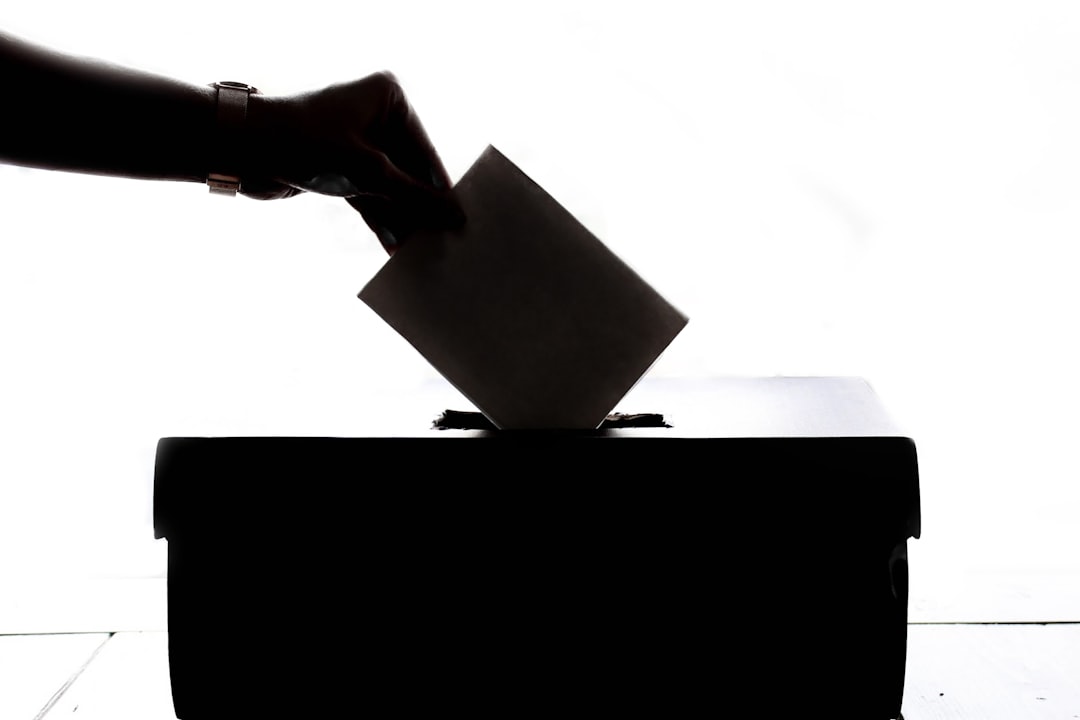Conflict of Interest in Election Governance: The Obscure Problem You Ought to Be Worried About
There’s a problem facing American elections that very few people talk about. It’s a problem arising more from bad rules than from bad guys, and that’s probably why you haven’t heard much about it.
The problem is that we allow partisan officials — often elected or appointed by parties — to run key phases of our elections. It’s a bit like letting competing teams pick the referees.
Doing so creates what we at Election Reformers Network call “conflicts of interest in our election governance system.” That’s a mouthful, so let me break it down.
“Election governance” is a term we’ve elevated to refer to the oversight of elections and key election processes. Secretaries of state and election boards are part of election governance. So, too, are bodies that manage ballot measure processes and control redistricting, whether independent commissions or legislative committees.
It’s worth distinguishing between election governance — where people make decisions that impact elections — and election administration — where detailed rules determine all procedures and leave little room for discretion.
When it comes to threats to our democracy, election administration is in very good shape: there’s little evidence of or reason to fear election manipulation at the administrative level (though human error is always a risk, one exacerbated by stingy funding).
Election governance, however, is a potential risk area because partisan officials with close links to parties have discretion over key decisions. That’s where the “conflict of interest” part comes in, because these officials can have dual conflicting loyalties.
As election officials, they are pledged to neutrally oversee elections, but as politicians with a political career to build or sustain, they sometimes have an incentive to help their side win.
Some governance bodies are well designed to remove or reduce conflicts of interest. For example, members of independent redistricting commissions are typically prevented by law from running for office in the districts they draw.
Legislative redistricting, by contrast, is rife with conflicts of interest. If you’re a legislator in the majority party in your state you get to draw lines that help you win your re-election, help your state party protect its majority in the legislature, and help your party win more seats in Congress.
That’s a massive set of conflicts of interest — no wonder every other democracy on the planet has done away with legislative control of redistricting.
Ballot measure management is another area of deep conflict of interest because it involves roles for leaders of one party, usually the secretary of state or attorney general, that can influence the outcome of votes directly affecting the party’s interests.
There is perhaps no clearer example of this than Ohio’s 2024 Issue 1, a citizen initiative meant to establish an independent redistricting commission. The initiative narrowly lost, probably due to misleading ballot language, written by the secretary of state. The summary voters saw on the ballot said that the proposed amendment would “eliminate the longstanding ability of Ohio citizens to hold their Representatives accountable ... [and] establish a new taxpayer-funded commission of appointees required to gerrymander…”
The problem isn’t limited to secretaries of state. Attorneys general somtimes use their role in the initiative process to promote their political goals. This was the case for Missouri’s 2024 reproductive rights amendment, when the attorney general demanded that the state auditor revise his fiscal assessment to include “billions” in potential costs. While the courts eventually ruled against the attorney general, the ploy delayed signature gathering by months.
Conflicts of interest become even more visible when these officials run for office themselves. In 2026, at least nineteen secretaries of state will oversee elections in which they are candidates. For the most part, the job of secretary of state does not touch on election processes in ways that allow them to directly help themselves win, but that’s not always clear to voters.
And there are exceptions. In 2018, then-Georgia Secretary of State Brian Kemp ordered a baseless investigation into alleged Democratic Party hacking, which likely padded his lead in the governor’s race. Similarly, partisan behavior was displayed by the Democratic Association of Secretaries of State in 2020, when it produced an anti-Trump ad that featured six sitting secretaries who were overseeing that year’s presidential election.
These conflicts arise largely because no state has laws requiring secretaries of state to preemptively address potential conflicts of interest or remain publicly neutral in elections they oversee.
While many of the institutional reforms needed to prevent these problems will take time to adopt, there are changes we can implement now that can increase impartiality and enable other important reforms in the future.
Protecting ballot measures from partisan interference should be a top priority. It is already underway in Missouri and Arkansas and will likely spread to other states. Continuing to advocate for fair redistricting is ever-more important amid our worsening gerrymandering wars. And encouraging sitting secretaries of state — and other election officials running for office — to recuse themselves from conflicted situations and publicly commit to neutrality are steps we can take to raise awareness about the importance of impartial election governance.
The bottom line is this: in our time of increasingly dangerous partisan clashes, we need to have election referees who are visibly neutral, impartial, and above the fray. Making that change can be a huge step toward restoring sanity to our democracy.

